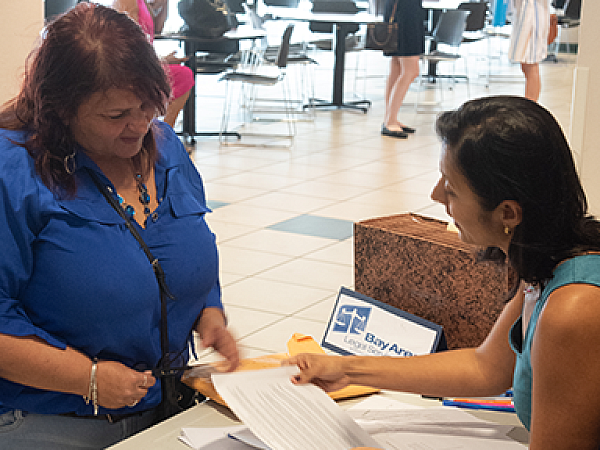How do I get my security deposit back?
Getting Your Security Deposit Back in Florida
Tenants are entitled to receive either a full or partial return of their security deposit when their lease ends.
A security deposit is money paid by a tenant to a landlord prior to moving in. The landlord may use the money when the tenant moves out to cover costs such as:
- Unpaid rent
- Damage beyond normal wear and tear
- Breach of lease terms
Tenant’s Duties Prior to Ending Your Lease
Step 1: Notify the Landlord: Before moving out, make sure you give your landlord advance notice. Always check your lease to find out exactly how many days in advance you have to tell your landlord that you are moving out (usually 30–60 days).
Step 2: Provide a Forwarding Address: You must give the landlord your forwarding address for the return of your security deposit. The landlord is only required to notify you of your security deposit by mail, so it is really important to make sure you provide your forwarding address.
Click here to download a Notice of Intent to Vacate Rental Property.
TIP: Take photos and videos of the unit before you return your keys to the landlord. It is important to document the condition of the unit when you move out to protect yourself against unfair or false claims.
Landlord's Duties After You End Your Lease
Your landlord must return your security deposit. You may receive a full security deposit return or a partial security deposit return.
Full Return
If no deductions are needed, the landlord must mail you a check to your forwarding address by certified mail for the full amount of the security deposit. Your landlord only has 15 days from the date your lease ends to mail your full security deposit.
Partial Return
If there are damages or unpaid rent, the landlord may deduct the cost to repair the damages and/or deduct the amount of unpaid rent from your security deposit. Your landlord has 30 days from the date your lease ends to mail a Notice of Claim. The Notice of Claim is a document that clearly states deductions the landlord took from your security deposit and the dollar amount for each deduction.
What Can Be Deducted from a Security Deposit
- Damage beyond normal wear and tear
- Unpaid rent or fees
- Cleaning costs
What Shouldn't Be Deducted from a Security Deposit
Landlords may not deduct the cost for repairs and cleaning related to normal wear and tear. Here are some common examples of damages related to normal wear and tear:
- Minor scuff marks
- Fading paint
- Small nail holes
- Minor carpet wear
- Carpet cleaning
- Loose doorknobs or cabinet handles
- Broken blinds or fixtures (such as ceiling fans)
- Plumbing issues (such as leaky faucets)
Options if You Don't Receive Your Security Deposit Back
Option 1: Contact Your Landlord
Call or email your landlord to ask about the status of your deposit. This may resolve the issue without further action.
Option 2: Write a Demand Letter
If you never received your security deposit back and the landlord never sent a Notice of Claim, write a demand letter to your landlord requesting the immediate return of your full security deposit. You should wait until at least 45 days after your lease ends to send the demand letter.
Click here to download a Demand Letter.
Option 3: Write an Objection Notice
You only have 15 days from the date you receive the Notice of Claim to make any objections. You must tell your landlord in writing that you object to the Notice of Claim and why.
Click here to download an Objection to Notice of Claim.
Option 4: Take Legal Action
If the landlord still doesn’t return your deposit, consider filing a small claims case. Keep copies of your lease, photos of the unit, receipts, and any written communication.
Last revised by Bay Area Legal Services attorneys: June 30, 2025
Upcoming Legal Clinics
Apply for Services
Apply by phone Monday-Friday, 9 a.m.-4:30 p.m., or apply online anytime for non-emergency legal matters. Language interpreters are available to you at no cost.
Bay Area Legal Services
If you live or have a case in Hillsborough, Pasco, Pinellas, Manatee, or Sarasota counties, we may be able to help.
Statewide Legal Helplines
If you live or have a case in Florida, we may be able to help.
